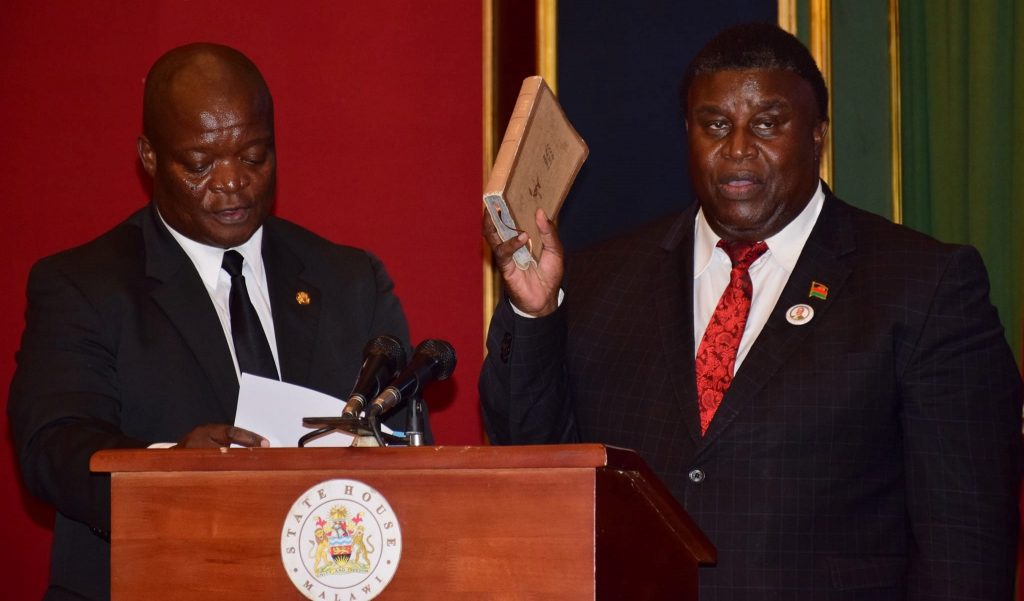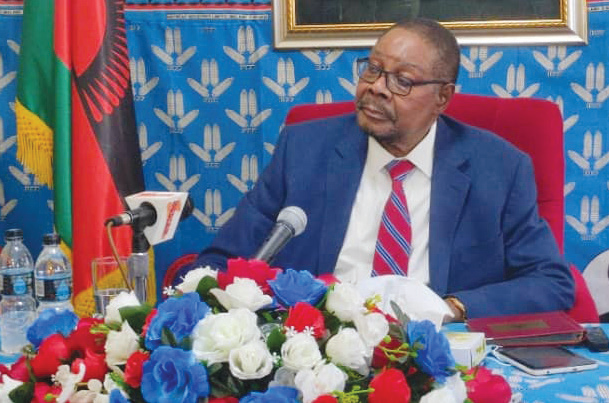Key performance indicators for the new Cabinet
President Lazarus Chakwera unveiled his new Cabinet to little fanfare. The unveiling did not attract much attention compared to his first two Cabinet, except for the usual jibes from some sections of the public that the President missed his deadline.
The more important question now is whether the new cohort of Ministers and their deputies will perform better than their predecessors.

When he unveiled his maiden Cabinet, Chakwera promised to assign key performance indicators to his new Cabinet to ensure that they are performing according to his standards and aspirations.
In retrospect, it seems the President only said that to appease some sections of the public who criticised him for using the Cabinet to reward and/or appease the people who aided his ascent to power.
To date, the President has never issued any KPIs to the Ministers and Deputy-Ministers he has appointed since then. If he developed the KPIs, none were made public.
Nonetheless, there are some issues that the new lieutenants in Chakwera’s government should address to get the economy back on track and improve the livelihoods of the people Chakwera promised to serve when he was elected into office.
Yours truly, ever the representative of the people, took the liberty of selecting some of the problems the Tonse-led administration will be expected to solve if the nine-party coalition is really interested in serving Malawians.
Revitalise the economy
First, the Tonse-led administration will have to implement policies that will stimulate economic activity to promote inclusive growth.
Local economic growth has been on a steady decline induced by the economic fallout caused by the Covid-19 pandemic, the disruptions of supply chains caused by the Russia-Ukraine war and weather-related shocks such as the Cyclones Idai, Ana and Gombe.
The Russia-Ukraine war robbed the international community of supplies of grain, cooking oil and fertilisers from Russia, Ukraine and Belarus.
Between them, the three countries produced about 10 percent of the world’s nitrogen and phosphorus fertilisers, as well as 35 percent of the world’s potassium before the war, according to statistics from the United Nations’ Food and Agriculture Organisation.
The shortage of fertiliser in both the local and global markets will likely undermine farmers’ capacity to grow crops for the 2022/23 growing season. The disruption to the growing season will likely push up consumer prices, especially in agrarian economies like Malawi.
It is important to note that the energy crisis created by the Russia-Ukraine war is already exerting inflationary pressures on the local economy on account of the rising prices of oil and petroleum products in the international market.
The Reserve Bank of Malawi has implemented a tight or contractionary monetary policy to reduce inflation. Some sections of the public, however, have expressed concern that contractionary policies, such as raising interest rates when the economy is heading into recession will stifle economic growth.
Reducing inflation without stifling economic growth should be a priority for the Ministry of Finance. There will be a lot of attention on how the interaction between tight monetary policy adopted by the central bank and the Minister of Finance’s fiscal consolidation strategy will affect the economy.
Restore sanity to the agricultural sector
In the same vein, the Ministry of Agriculture should move with haste to ensure that farmers get their fertilisers and seed on time. Ensuring that the country has enough food in the 2023 growing season will be key to the government’s effort to contain inflation and promote growth.
After all, food inflation accounts for about 52 percent of headline inflation. Aside from that, most of our exports including tobacco, coffee, tea and cotton are agricultural products, which means that a poor season will put a serious dent in local economic growth.
The Ministries of Finance and Agriculture will have to ensure that farmers have the resources this season to grow crops while simultaneously investing in resilience to mitigate future climatic and weather-related shocks. A tall order when the economy is running severe deficits and is in debt distress.
Chakwera may be reluctant to develop KPIs for his team, but if the new cohort of ministers and their deputies can revitalise the economy and protect vulnerable farmers, it may well be an unqualified success.
With Eric Mtemang’ombe
Reducing inflation without stifling economic growth should be a priority for the Ministry of Finance. There will be a lot of attention on how the interaction between tight monetary policy adopted by the central bank and the Minister of Finance’s fiscal consolidation strategy will affect the economy.
Feedback : mtemangombeericnoel@gmail.com





